Reporters for the WSWS interviewed workers in Perama, a working-class town in the Athens suburbs. It houses the western terminus of the Port of Piraeus, including a container-unloading facility, a ship repair yard, and a passenger ferry terminal. The Port of Piraeus is the largest commercial port in Greece and in the Eastern Mediterranean basin, handling 20 million tons of goods per year before the outbreak of the economic crisis.
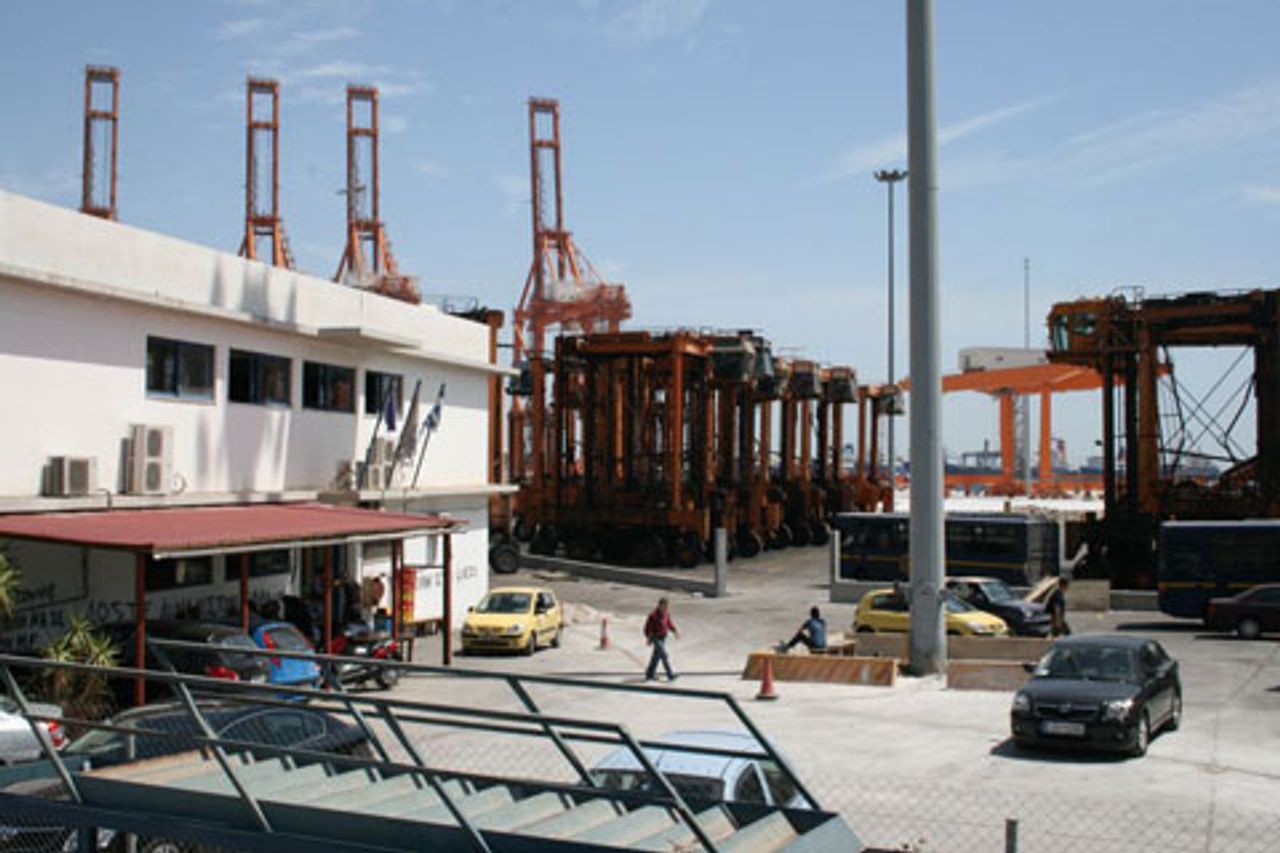 The entrance to the state-owned container yard
The entrance to the state-owned container yardWorkers in Perama were bitterly angry at Prime Minister George Papandreou, who said he would increase social spending with a multi-billion-euro investment package before his election last October. Immediately upon being elected, Papandreou slashed spending in line with the demands of the banks and the European Union (EU). Papandreou has taken €110 billion in loans from the EU and the International Monetary Fund (IMF), in exchange for promises to carry out massive social cuts against the population.
Perama workers also denounced the unions—whose leaders largely come from Papandreou’s PASOK party and work with the government—for mounting weak and sporadic protests against the cuts. Older workers often compared the economic situation to that during the US-backed military junta that ruled Greece from 1967 to 1974, noting that workers today are worse off.
The WSWS visited both the ship-repair yards and container-unloading docks, which were both running far below capacity and had recently suffered major workplace accidents.
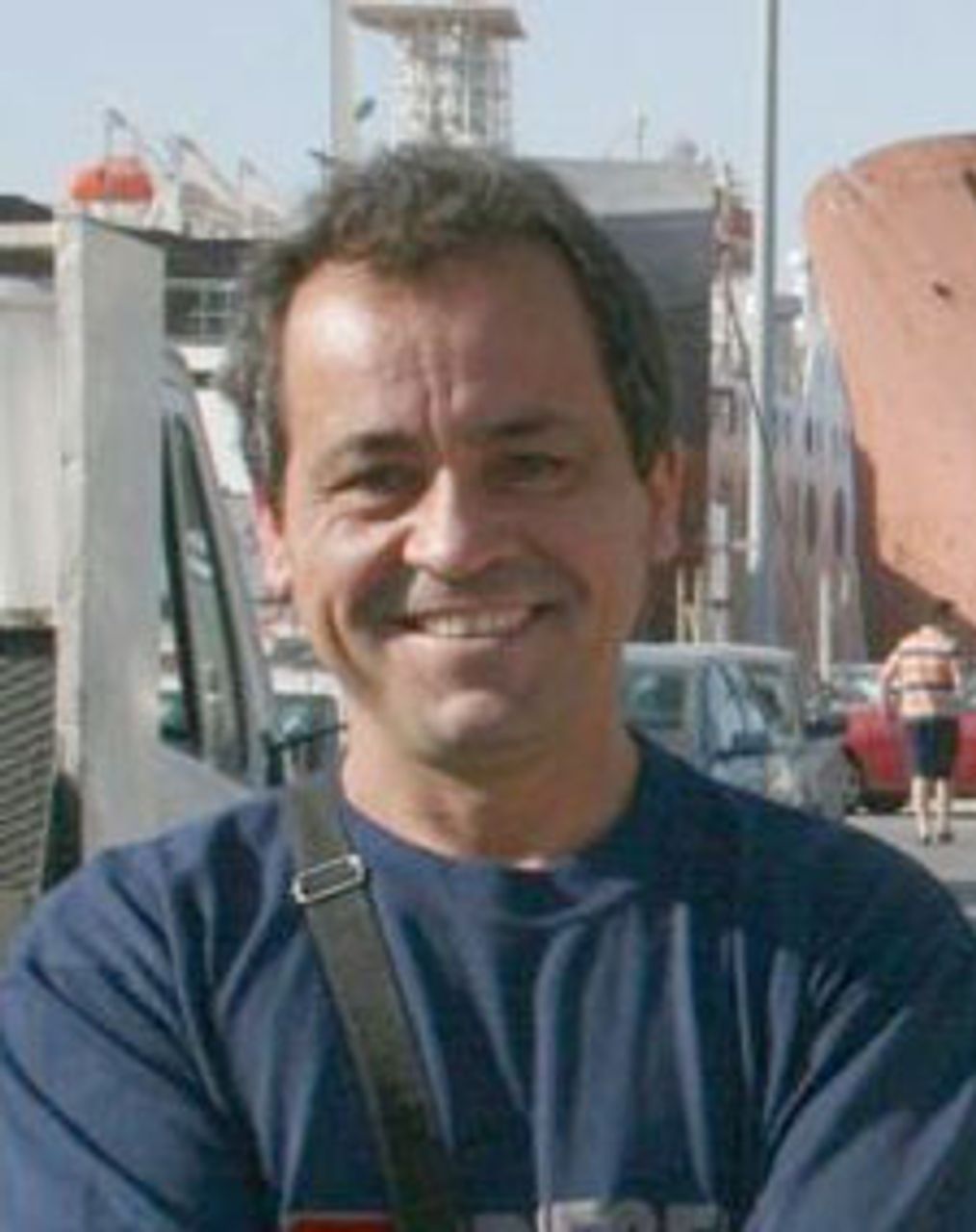 Panayotis
PanayotisPanayotis has worked for twenty years at the Perama ship-repair yards. He said, “Most workers have been fired in the last year and a half. We don’t know if the jobs will come back. We’re down to 500 workers; there were 5,000 workers before. The working conditions here are very bad: high temperatures, a lot of fumes. The standard shift is 8 hours, but with overtime you work 12 hours. Workers start out here earning €1500 a month.”
Tassos added, “We don’t know anything about what will happen to our retirement. We hear things on TV, and they are not clear yet.”
Asked what he thought of Papandreou, Panayotis said, “He cheated us with his election promises. He has not made the rich pay. There have been bailouts in all countries; it’s a global crisis. These are the worst conditions. Workers gained things gradually after [the fall of the military junta in] 1974, through strikes and struggles. Who could strike during the junta, after all? So [improvements in workers’ conditions] had to come after 1974.”
 Kiriakos
KiriakosIn a café inside the shipyard, Kiriakos, a welder, said, “There are many workplaces accidents, and there have been several fatalities. One and a half years ago, eight workers lost their lives. They were trapped and then poisoned by fumes.” Kiriakos continued, “We went on strike for 10 days, demanding safety measures. We spoke to the ministry, but all their words were for nothing.”
Theophilos added, “They never take security measures around here. You’re basically beholden to the employer.”
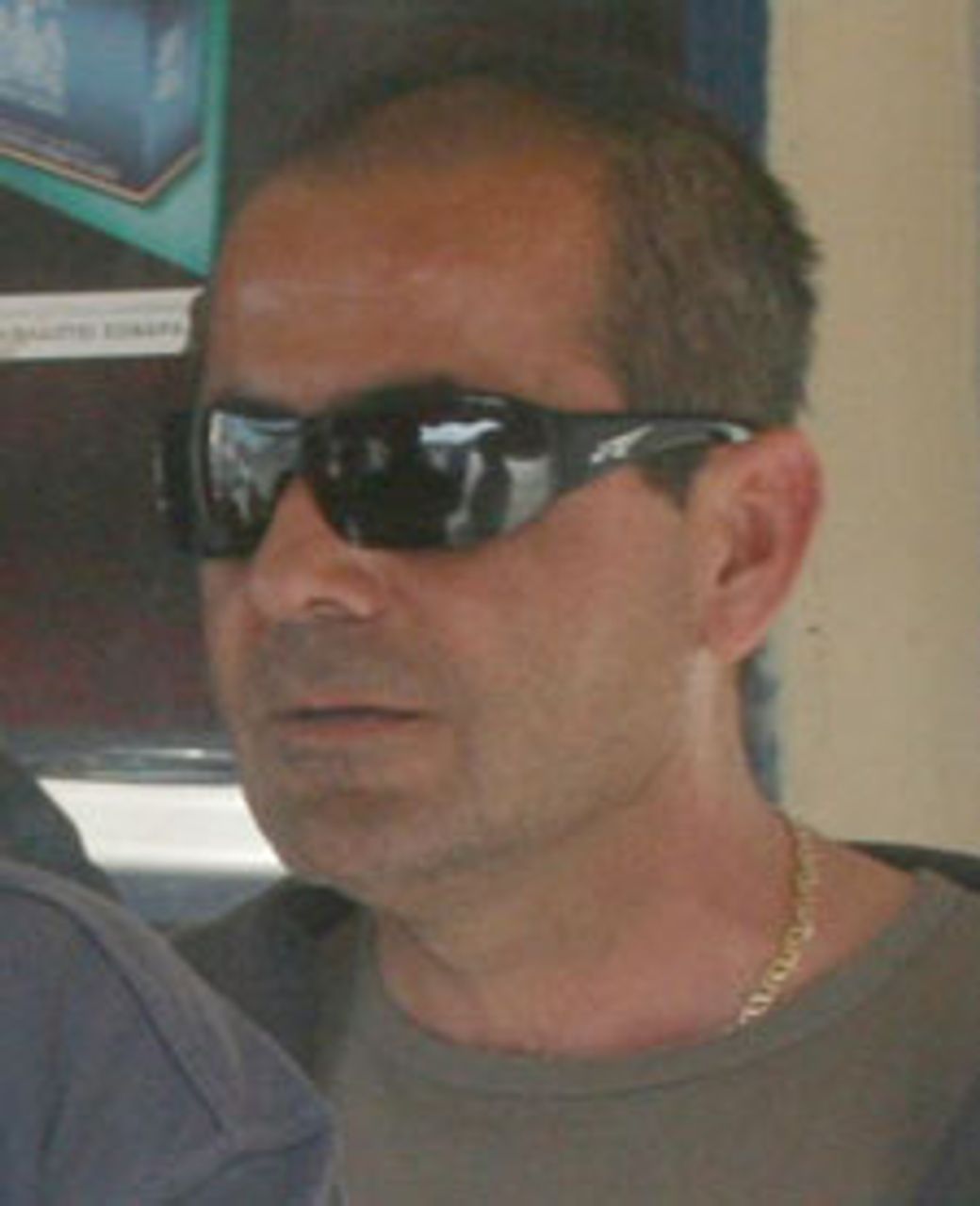 Theophilos
TheophilosDimitris said, “Life is very difficult. The issue is not salaries, but that when you’re unemployed, you don’t get a salary. Over the last one and a half years, there have been no big jobs coming in. Over the last 5 months, we’ve only had 20 days’ work. Really, we’re unemployed.”
Theophilos said, “No one’s insured, you’re not insured for unemployment” because if workers miss even one €67 payment into the unemployment insurance fund, they lose benefits.
Asked what workers at the yard thought of Papandreou, Kiriakos replied, “This is our second home, they’ll have to take our blood if they want to shut it down. We need jobs. There are a lot of divorces when workers lose jobs. Greece has the biggest shipping fleet in the world, and the scoundrel shipowners don’t bring jobs here.” Speaking on the IMF bailout, he said, “The IMF’s money just goes to the elite, and the workers are left on the street.”
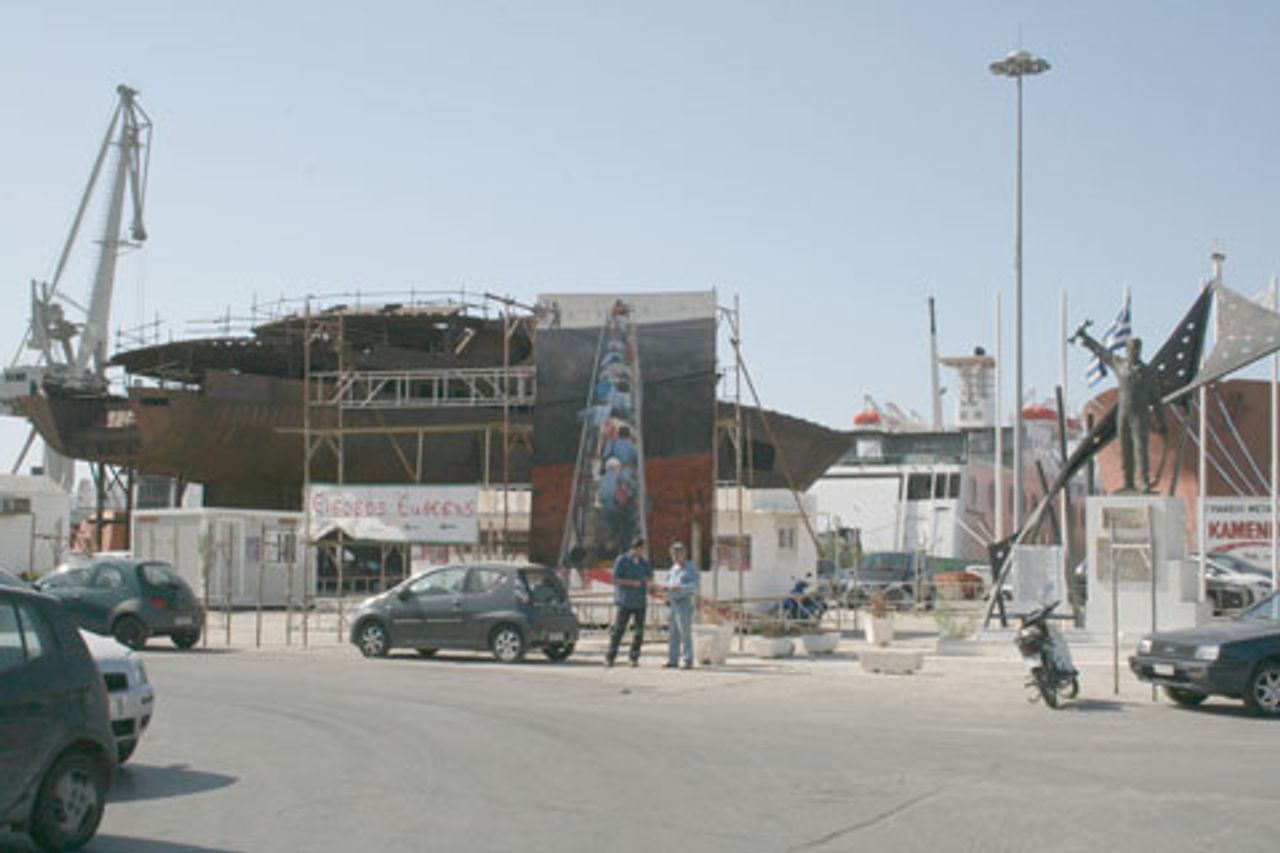 The entrance to the ship repair yards
The entrance to the ship repair yardsThe shipyard workers and WSWS reporters discussed how banks and politicians were moving to make workers pay for the bailouts around the world. Workers asked about the US’ role in the despised Greek bailout organized by the IMF, in which the US government effectively has veto power. Some were surprised to hear about the problems of unemployment and poverty that many US workers face, since Americans are often described in Greece as wealthy.
Ultimately, everyone agreed that US and Greek workers needed to struggle against a common enemy: the banks and politicians trying to make workers pay for the crisis. Vassilis, a 63-year-old retiree, said: “I traveled to the US and Asia in the merchant navy. The US used to be nice; some people say bad things about Americans, but I don’t. They may treat people very badly overseas, but inside the US people treat each other with respect. I thought about working in the US as a welder, but I could not have gotten work papers.”
He explained, “I started working here during the junta. You needed a special pass to get in. If you were a leftist, they wouldn’t let you in, so we had to climb over the fence [to get to work]. After the junta fell, the people who took over were all thieves. Things are worse today than during the junta. By comparison, people lived well in those days.”
Workers expressed concern for their children’s future, as it is becoming very hard to pay for the traditional extra private lessons. Theofilos said, “Our kids will end up illiterate; only the politicians’ kids will study from now on. I have three children.”
WSWS reporters spoke to Lefteris, a 53-year-old recycling worker for the municipality of Perama, with 16 years’ experience. He said, “We’ve had cuts to our salary. The Easter bonus has been cut €200 to €250, the summer bonus is down 30 percent, and the Christmas bonus has been cut from €1000 to €500. My actual salary has not been cut, but the 13th and 14th months have been eliminated. My gross basic salary is €900, but rent is €400 and utilities and food are extra and they’re rising in price a lot. For instance, a packet of lentils has gone from €0.50 to €0.57, and dish detergent went from €1.80 to €2.00 overnight.”
Speaking of the current government, he said: “Papandreou cheated us, he said he had a lot of money before the election. Now people are hungry, there is a lot of misery. I don’t know if people in the US understand. Tourism is collapsing, there are no new jobs here. There’s 25 percent unemployment in Perama.”
Lefteris also criticized the trade unions as a cog in a corrupt political establishment: “Whoever leads the GSEE [Greece’s main trade union federation] becomes an MP, it’s part of the game. [GSEE president Yiannis] Panagopoulos will become a member of Parliament. It doesn’t take much to realize this.”
He added that the GSEE strategy of carrying out sporadic, one-day general strikes was toothless: “The general strikes don’t achieve anything. If you go on strike, you should go on strike indefinitely. If you strike for 5-10 days, you’ll get nothing. If you have an indefinite strike, everyone should strike. If you don’t struggle, you don’t win anything.”
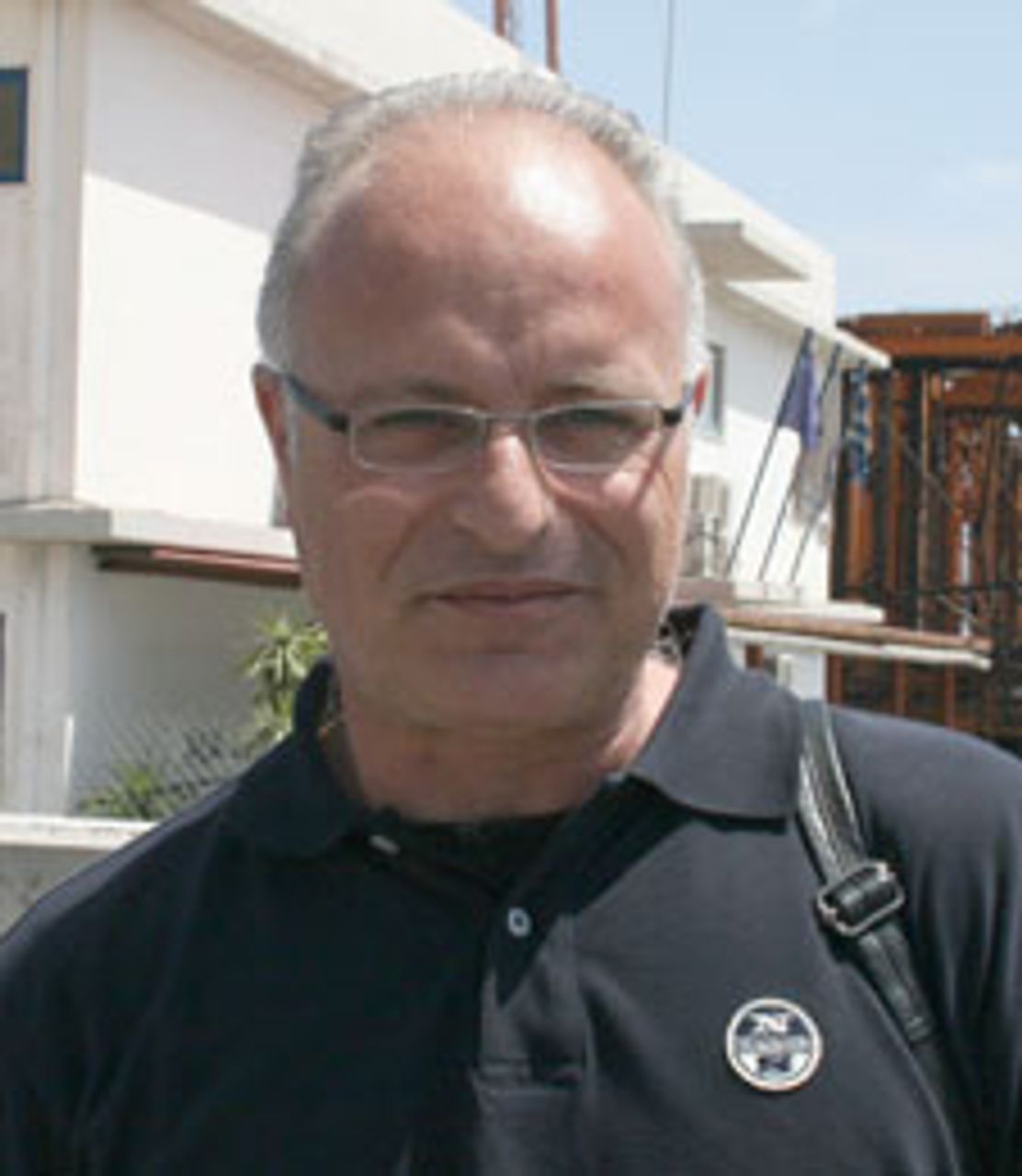 Yiannis
YiannisCommenting on the consequences of the crisis, Yiannis, a machine operator at the partially state-owned Perama docks, said they included “cuts in wages and bonuses, probably 10 percent overall so far. Part of the port has been sold to the Chinese [company Costco]. The machines aren’t moving now; two years ago the port was running full out.”
He described the Papandreou government as “scoundrels, thieves, cheats, and liars,” and said that there were too few strikes against Papandreou. Asked why there were not more strikes, he said, “Workers don’t have much money, so it’s harder to strike. Also, the trade unions are the servant-girls of the two major parties.”
The WSWS reporters were invited into the dockworkers’ café, and spoke to workers there. They said that, though no one had been fired yet, they now only have enough work to keep them busy one third of the time.
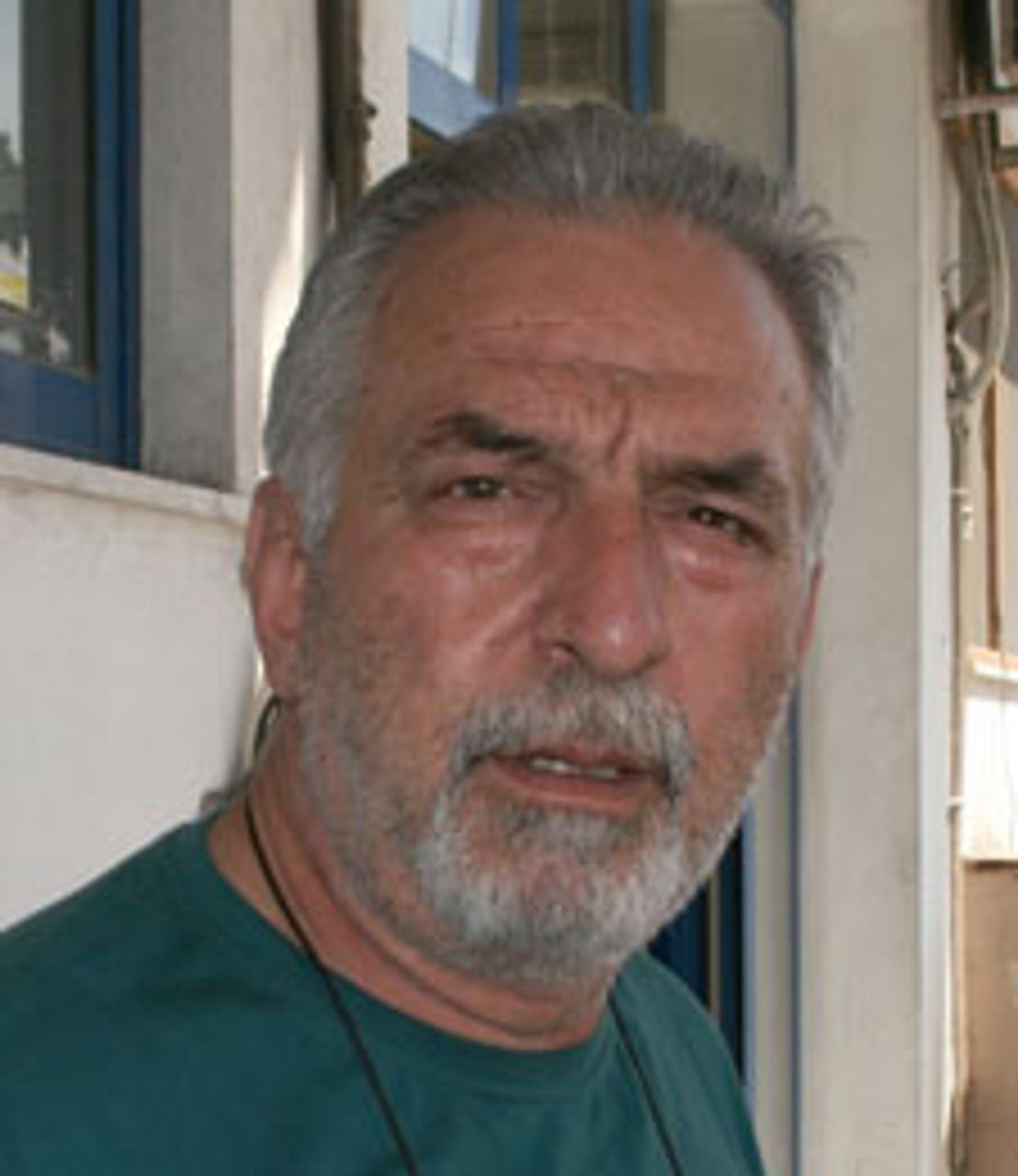 Giorgos
GiorgosGiorgos, the shop steward, explained a recent accident at the docks: “Two workers were severely injured in Costco. They were working without proper training, with only 2-3 months on the job. The machinery here is not found in other ports in Greece, and it fell over on them. The private company doesn’t adhere to security procedures, and that’s the consequence. They try to cut costs, hire people without training, and hope to God there will be no accident. Unfortunately, God has other priorities.”
